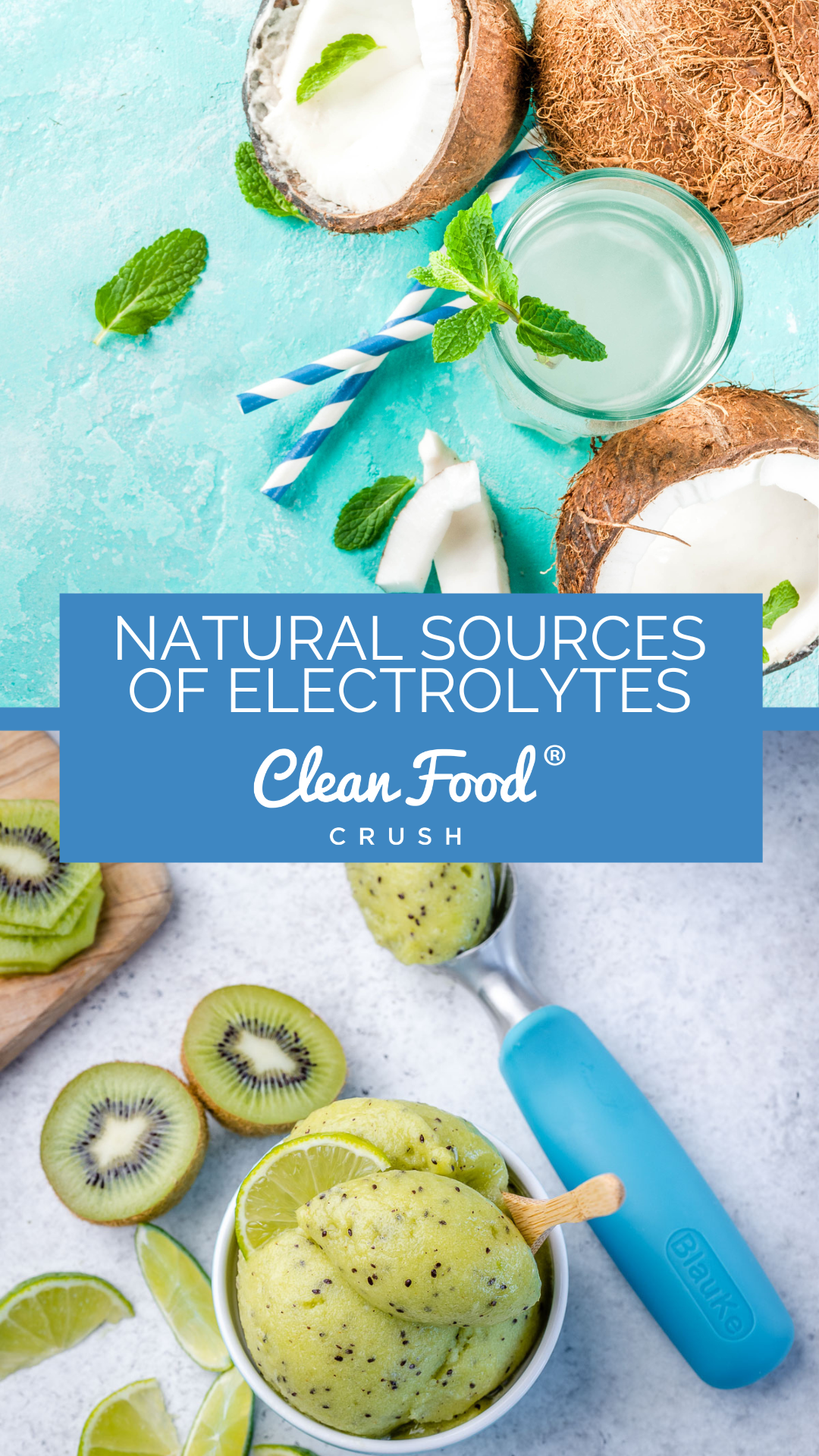

What are Electrolytes and Where Do You Get Them?
Electrolytes play many important roles in your body and are essential for everyone. While the term “electrolytes” may make you think of extreme athletes or products such as Gatorade, there are many more ways to get them than just by drinking sports drinks.
Read on to learn more about what makes electrolytes vital and what you can do to ensure you’re getting enough.
What are Electrolytes?
Electrolytes are minerals that carry an electrical charge. Electrolytes can be acids, bases, or salts, depending on their chemical composition, and they’re stored in your blood and other bodily fluids.
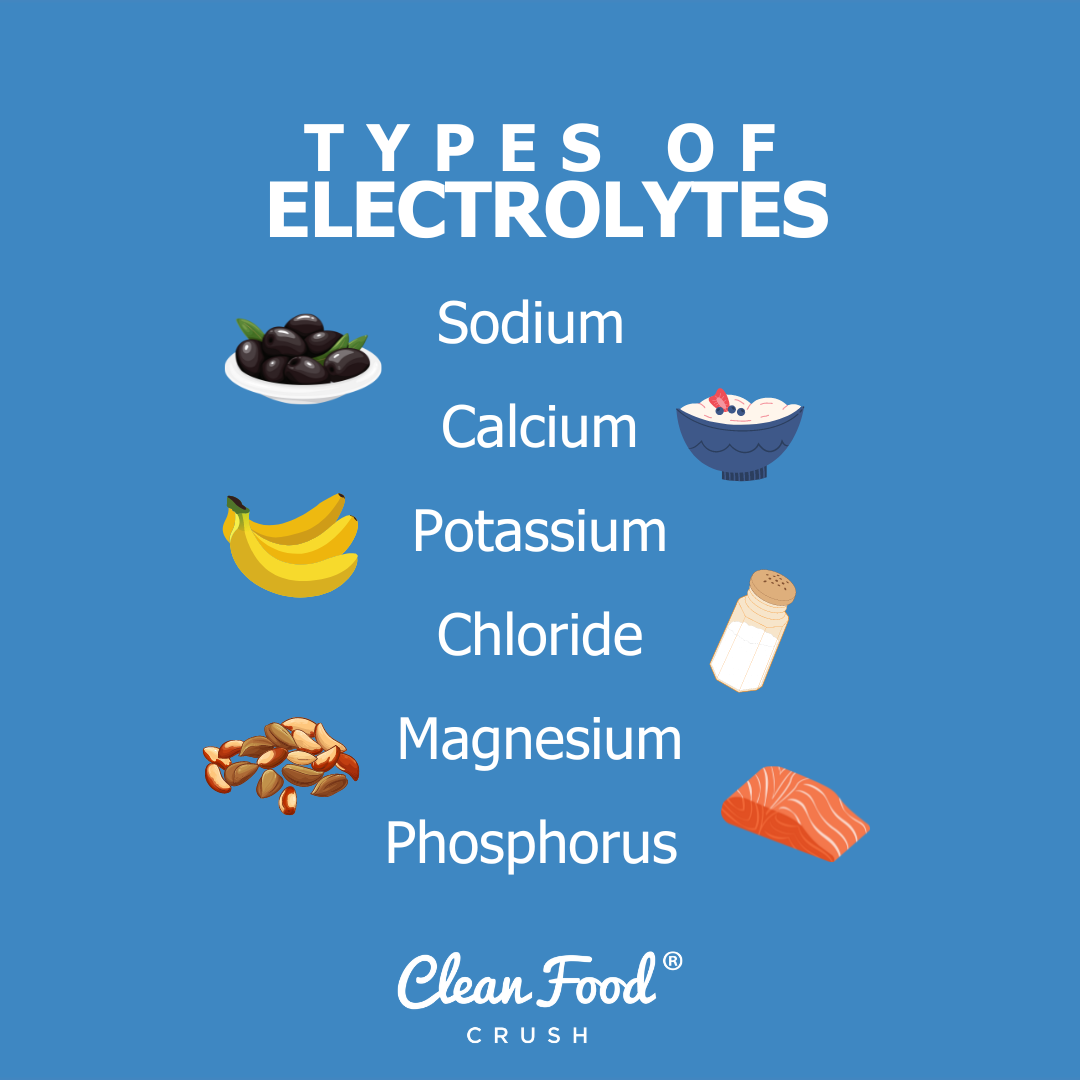
Types of Electrolytes Include:
-
Sodium
-
Calcium
-
Potassium
-
Chloride
-
Magnesium
-
Phosphorus
Why are Electrolytes Important?
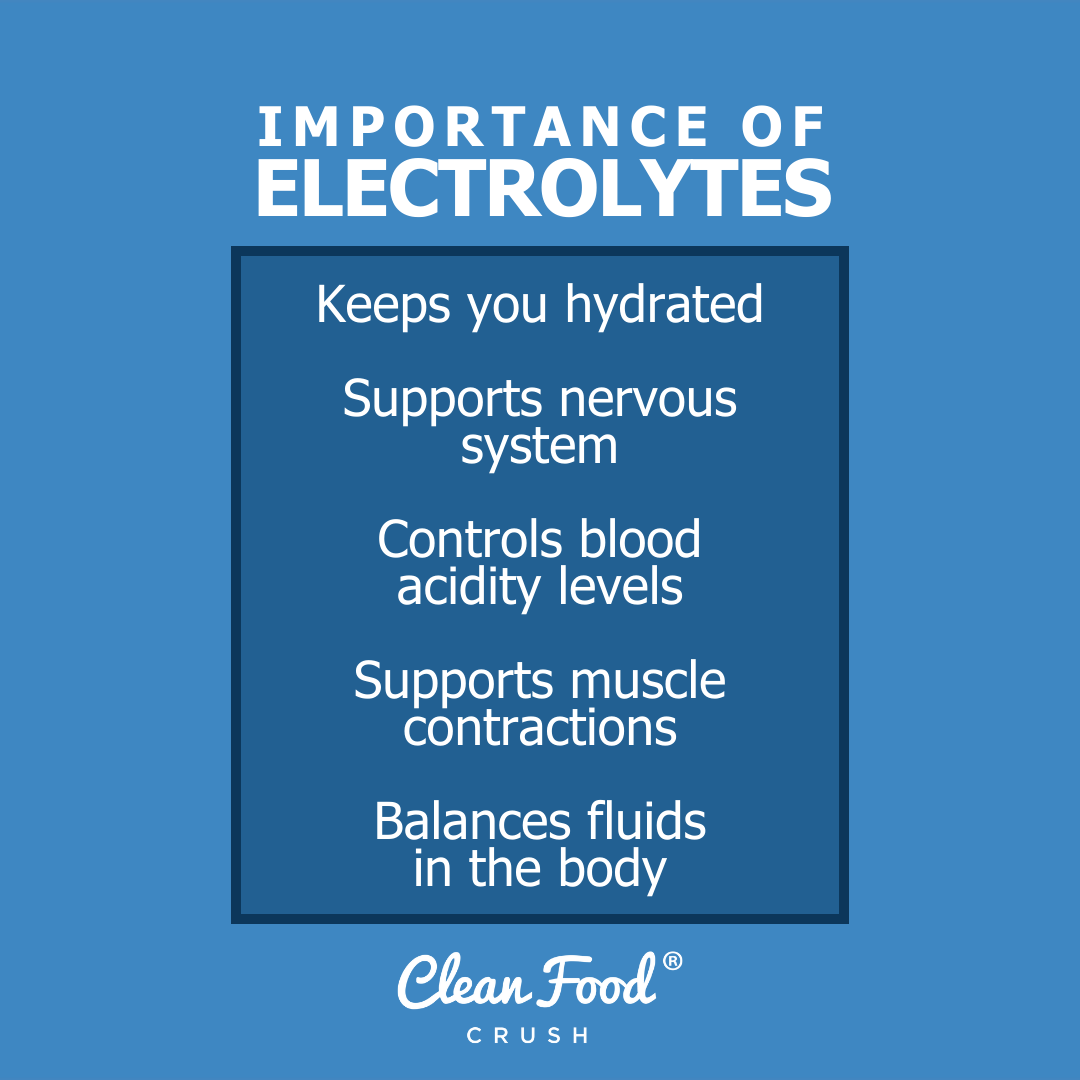
The crucial ways electrolytes influence things that determine how your body functions include:
-
How acidic your blood is
-
How much water is in your body
-
How your muscles and nerves function
-
How hydrated you are
Your body works hard to maintain a balance of electrolytes, but some things can cause you to lose more such as: sweating, urinating, vomiting, and diarrhea.
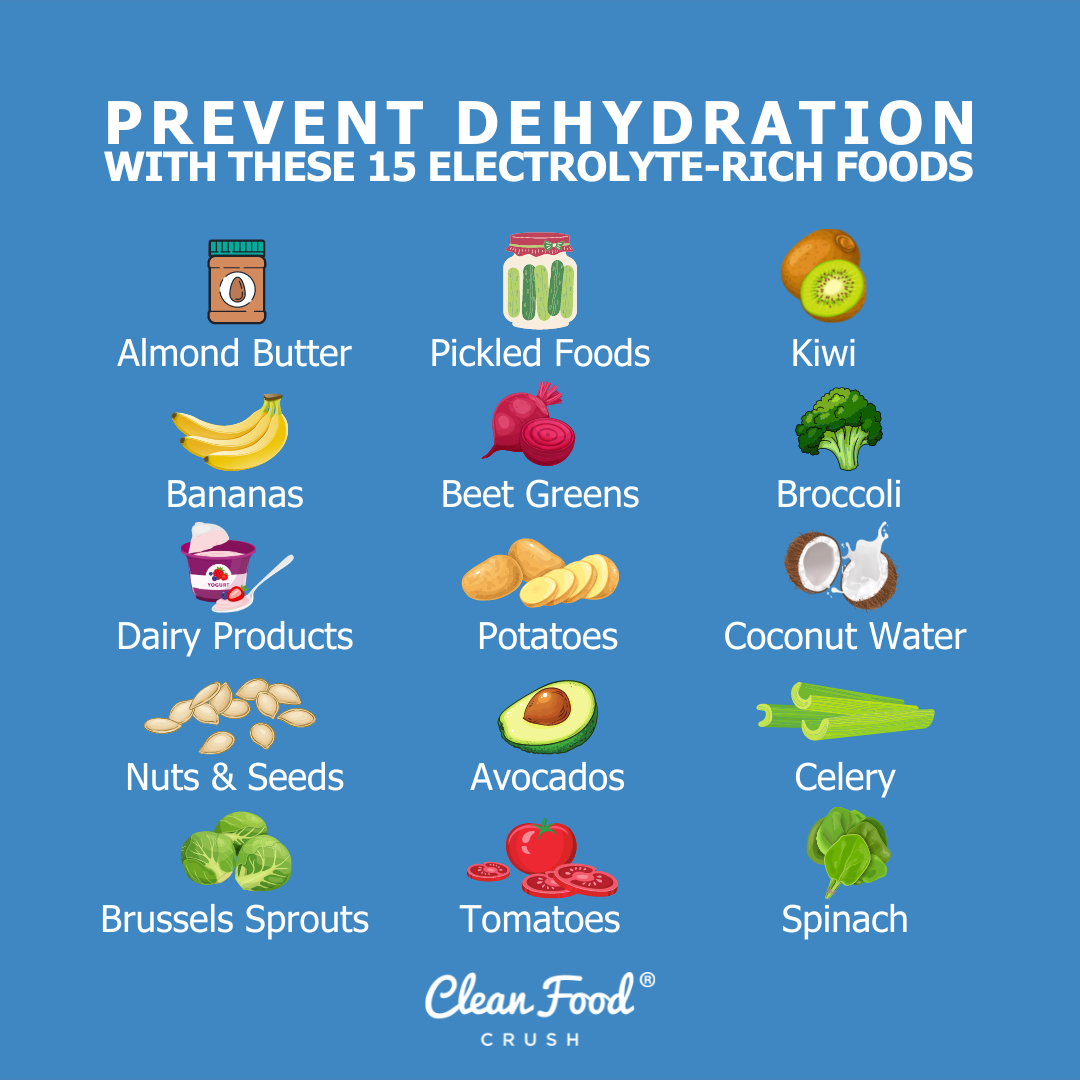
In some cases, you may lose too many electrolytes, causing your body to become dehydrated and out of balance in other ways. This is more likely to happen when you are sick, engage in intense exercise, or are out in the heat for extended periods (such as during the summer).
Different electrolytes can be lost at different times. For example, when you sweat, you primarily lose sodium. Vomiting or having diarrhea may cause you to lose a combination of sodium, potassium, and chloride.
Losing too many electrolytes can be dangerous to your health.
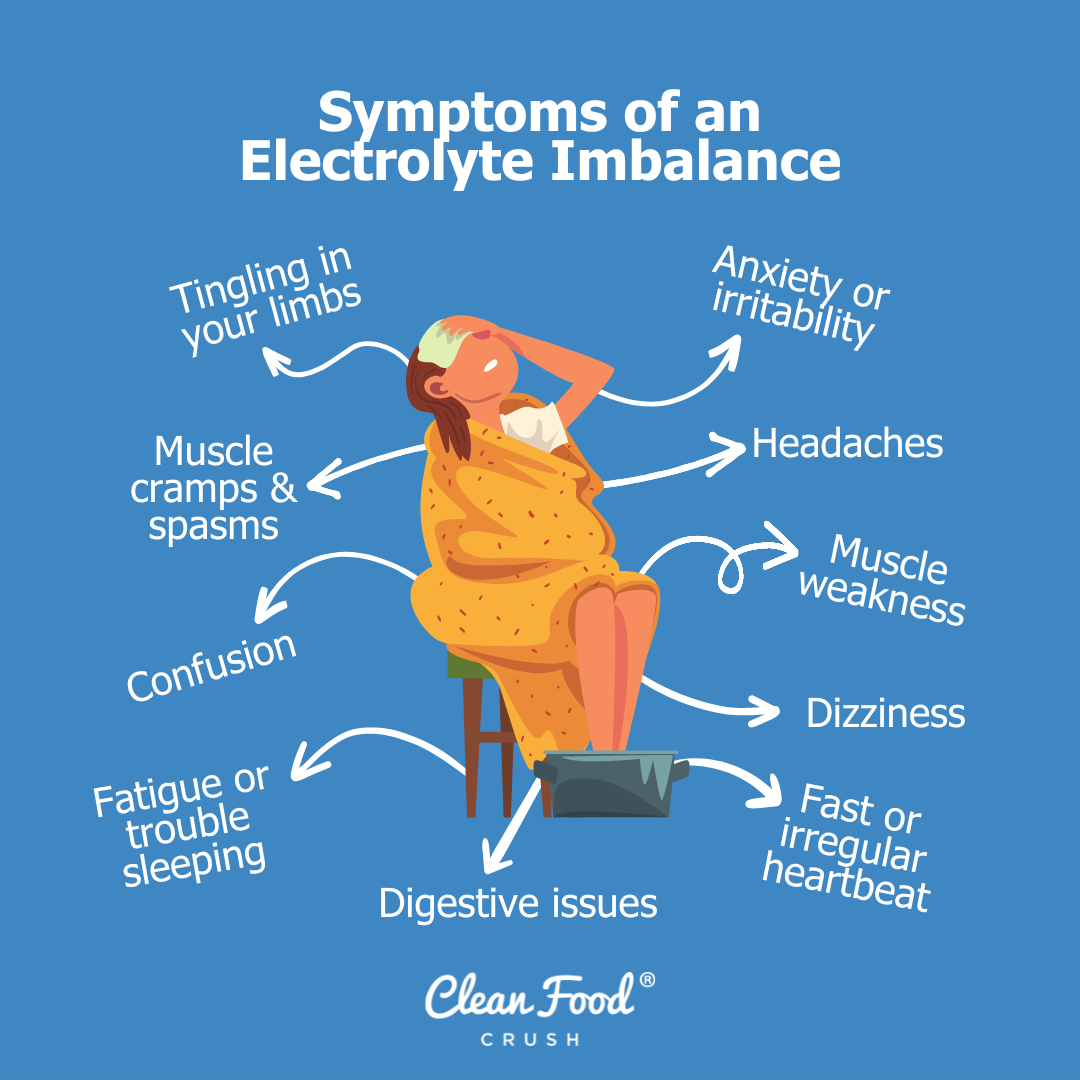
While you may not have symptoms associated with a mild electrolyte imbalance, more significant electrolyte imbalances can cause symptoms such as:
-
Fatigue or dizziness
-
Fast or irregular heartbeat
-
Muscle weakness
-
Muscle cramps or spasms
-
Confusion
-
Headaches
-
Tingling in your limbs
Whether or not you have symptoms, it is crucial to replenish lost electrolytes to protect your health.
Where to Get Electrolytes
People often think of sports drinks when they think about electrolytes. Yet they’re found in many other foods and beverages as well.
Common Food Sources and Recipes:
Sodium: table salt, pickled foods, cheese, and most packaged foods
Beet Pickled Deviled Eggs

“Pad Thai” Inspired Zoodles

Calcium: dairy products, soybeans, green veggies like broccoli and Brussels sprouts, and some nuts and seeds such as almonds and sesame seeds
Broccolini + Halloumi Power Bowls
Greek Yogurt Chocolate Mousse
Potassium: tropical fruits like banana, kiwi, and coconut, as well as potatoes, avocados, and tomatoes
Snickers Candy Bar Banana Pops
Easy Peasy Kiwi Sorbet
Magnesium: nuts, seeds, and whole grains
Creamy Cashew Cauliflower Soup
Chloride: table salt, and small amounts in seafood and some meats
Chipotle Tuna Salad Stuffed Avocados
Most people do not need sports drinks to replace lost electrolytes. In fact, many of those drinks can be loaded with added sugar or artificial sweeteners and dyes, which aren’t good for your health.
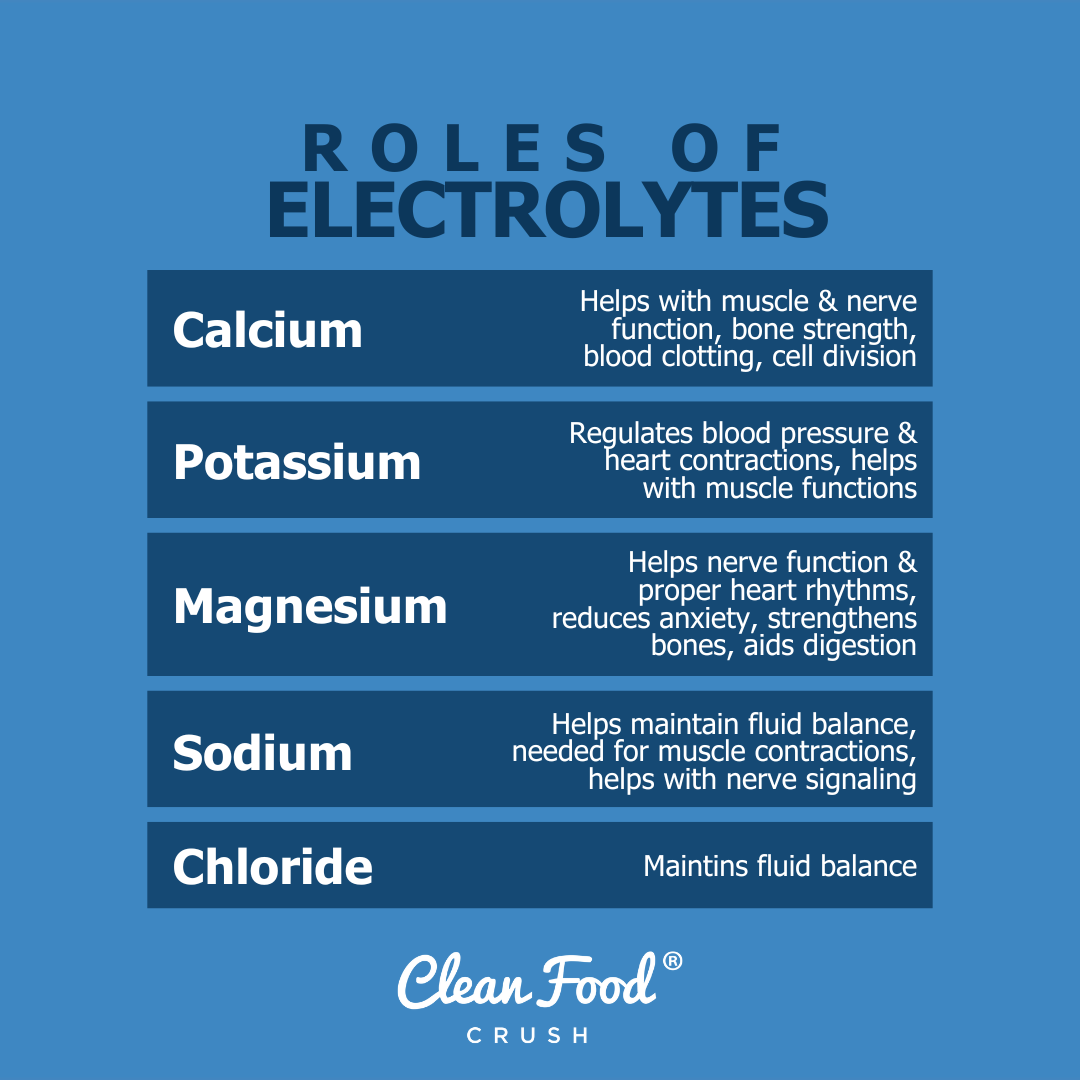
Coconut water is a healthier natural alternative to sports drinks since it is rich in potassium and contains some sodium. Other ideas include making a smoothie or smoothie bowl, which can be naturally rich in electrolytes.

In Summary
Electrolytes are essential minerals to the human body’s survival. Some factors, such as vomiting or sweating, can cause your body to lose electrolytes and dehydrate. This is why it is imperative to replace lost electrolytes.
Eating an overall balanced diet that includes natural food sources of electrolytes is an excellent way to help maintain normal electrolyte levels in your body. If you choose to supplement, you should talk with your doctor about proper type and dosing.






















